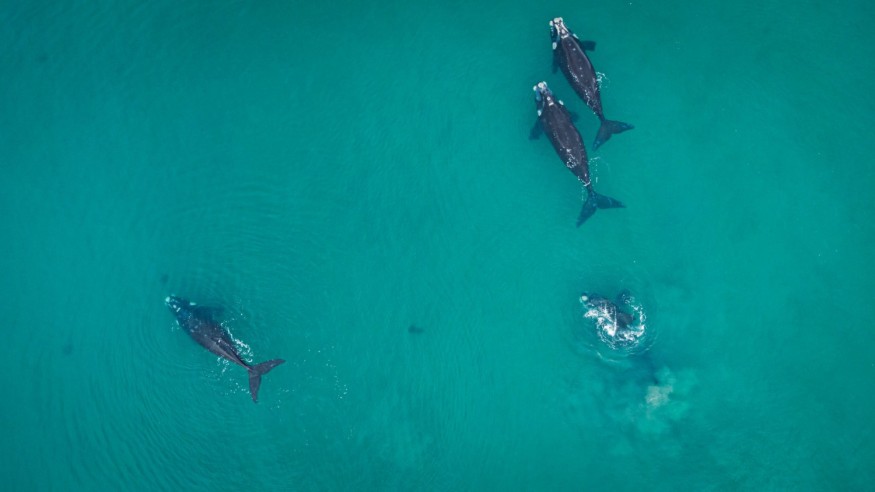At least 30 pilot whales were observed by marine experts off the Yorkshire Coast.

According to the British Divers Marine Life Rescue (BDMLR), these marine animals were seen near the Flamborough Head and Danes Dyke beach.
The experts have remained on standby for more sightings of these whales as they are concerned that these will swim towards the shore and will later result in mass stranding.
While some of the videos of these whales have showed their normal behavior, the marine mammals also depicted an anxious behavior, which, according to scientists, could mean that they are in danger.
They noted that it is uncommon for these pilot whales to be seen in the North Sea.
In the past week, a pod of pilot whales was also observed in Scotland and Northumberland, with the researchers saying that the latest observance could be the same group.
Previous incidents
The BDMLR also disclosed that a mass stranding of pilot whales took place on the Isle of Lewis last month. Authorities said that there were about 55 marine animals, which included both adults and calves.
Unfortunately, officials obtained a report that only 15 of these have remained alive.
They said that one of the dead whales was found to have had a vaginal prolapse, prompting them to suspect that the entire group stranded because one female was giving birth.
Earlier research showed that pilot whales have been known for their strong social bonds and this means that if one whale gets into difficulty and strands, the rest of the pod will certainly follow.
Meanwhile, marine scientists had attempted to refloat two of the more active whales, however, one subsequently restranded and died later. On the other hand, the other whale survived.
Three more whales also died.
Following observations, the local veterinarian in the area, together with the Coastguard, Fire and Rescue, and a forensics veterinarian concluded that the shallow beach and rough sea conditions were considered in deeming that it was unsafe to refloat the remaining pilot whales.
Furthermore, they considered that since the pilot whales had been out of the water for quite a long time, it the experts heartbreakingly decided that the remaining whales would be euthanized in the welfare grounds.
Last month, marine experts conducted mass stranding exercises at the Sizewell beach in Suffolk.
More or less 30 volunteer medics from the BDMLR participated in the exercises that were carried out, with multiple model whales stranded on the beach.
The team then assessed and provided first aid to the whales.
What is mass stranding
The National Oceanic and Atmospheric Administration described that whales, dolphins, and porpoises (cetaceans) are considered stranded whenever they are found dead, either on the beach or floating in the water.
This could also mean that they were alive on the beach and unable to return to the water.
Mass strandings primarily happen when two or more (not including a mom and calf) whales or dolphins strand together.
Experts said that live-stranded animals usually need medical attention or professional assistance in order for them to return to their natural habitat.
Related Video:
© 2025 NatureWorldNews.com All rights reserved. Do not reproduce without permission.





